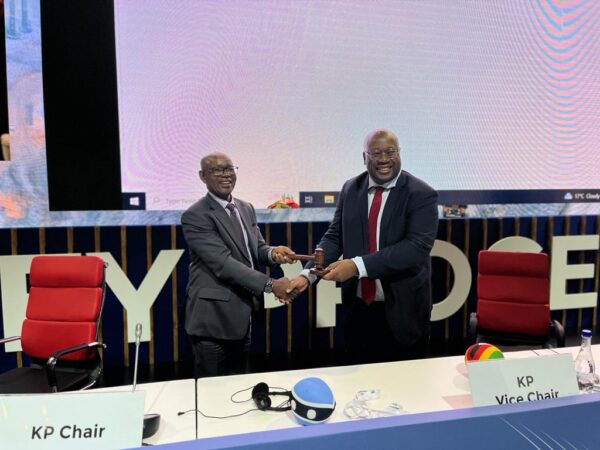Zimbabwe has assumed the chairmanship of the Kimberly Process (KP) that will see the country leading the scheme in 2023 and has promised to leave a lasting legacy and a positive impact on the KP.
Rudairo Mapuranga
As chair, Zimbabwe will oversee the implementation of the Kimberly Process Certification Scheme (KPCS) and operations of the working groups, Committees and administration that activate the KP.
The Republic of Zimbabwe will be deputized by the United Arab Emirates who will be the KP Vice Chair for 2023.
The year 2023 is the KP’s reform year where a host of changes are expected including conflict diamonds definition, implementation of tripartite arrangements in participating countries and strengthening best practices for the Artisanal and Small scale mining in diamond-producing regions among others.
In his acceptance speech, the Minister of Mines and Mining Development Hon Winston Chitando said Zimbabwe was committed to leaving a lasting legacy as well as a positive impact on the KP and will diligently work closely with the Working Groups and Committees to deliver its mandate as the chair.
“On behalf of the Republic of Zimbabwe, we are honoured to accept the KP Chairmanship (2023).
“We will diligently work closely with the Working Groups and Committees to deliver on, among others, the following areas;
- KP Review Cycle: so that we build the KP we want as the KP Family. As agreed we will focus on identified reform areas that include definition, technical assistance, community involvement and strengthening KP governance, to be spearheaded by the Ad Hoc Committee on Review and Reform
- Peer Review system: so that we enhance compliance
iii. Implementation of the tripartite arrangement in all Participating countries: to ensure best practices as diamonds are for the people
- Strengthening of best practices for Artisanal and Small Scale Mining in diamond-producing regions, such as the Mano River Union among others
- Digitalization of KP certificates among other initiatives
“These will be achieved through seeking consensus amongst participants and observers as well as continuous consultation with Chairs of Working Groups and Committees.
“The KP Review Cycle is starting in 2023. This is a critical stage for repositioning the KP to remain relevant in the global rough diamond trade. We can assure you that the Republic of Zimbabwe as the KP Chair, will aim for a successful start to the Review Cycle. We will seek to achieve consensus in reaching all decisions as per KP rules.
“It is our commitment to leave a positive impact on the KP as well as a lasting legacy, ” Hon Chitando said.
Dr Michael YoBoue Coordinator of the Kimberly Process Civil Society Coalition (KPCSC) said Zimbabwe has already proven that it will successfully implement reforms when the KP review visited the country and witnessed a lot of positives.
“As we move towards 2023 which is a KP reform year, it is important for Zimbabwe as incoming Chair to set out its planned goals and modalities for achieving consensus on expanding conflict diamond definition and helping in finding a lasting solution on how the KP can address any situation that might give rise to diamond-related human rights violations in any part of the world. We all found comfort this year that Zimbabwe turned the corner on such matters when the Review Visit found a lot of positives. It should not slide back. It should instead be the torch bearer for reforming the KP on expanding the definition. The long overdue expansion of the KP’s conflict diamond definition should include diamonds associated with widespread or systematic violence and serious violations of human rights, regardless of whether they are committed by rebel groups, criminals, terrorists, private or public security forces or any governmental actor. The reform process, however, needs to go beyond the expansion of the definition and also address governance and decision-making,” Dr YoBoue said.
About the Kimberly Process (KP)
The Kimberley Process (KP) is a multilateral trade regime established in 2003 with the goal of preventing the flow of conflict diamonds. The core of this regime is the Kimberley Process Certification Scheme (KPCS) under which States implement safeguards on shipments of rough diamonds and certify them as “conflict-free”.
Under the terms of the KPCS participants must:
- Satisfy ‘minimum requirements and establish national legislation, institutions and import/export controls.
- Commit to transparent practices and to the exchange of critical statistical data.
- Trade only with fellow members who also satisfy the fundamentals of the agreement.
- Certify shipments as conflict-free and provide the supporting certification.




